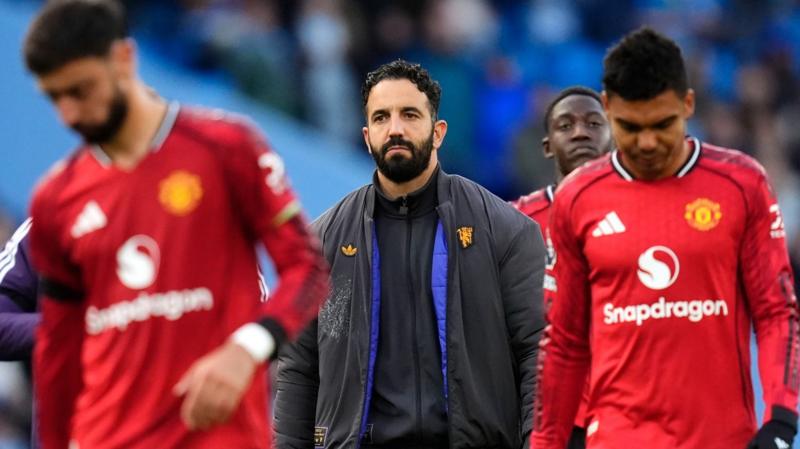Man Utd's Real Issue: It's Not the System, It's the Personnel!




Football matches between Manchester United and Manchester City always promise to ignite the passions of fans, and the analysts are no exception when it comes to dissecting every pass, goal, and managerial decision. Danny Murphy, a seasoned Match of the Day pundit, recently shared his insights on the latest derby clash, notably focusing on Manchester United's tactical setup.
Manchester United faced a tough fixture against their city rivals, Manchester City, but unfortunately for United fans, the game did not go their way. This defeat has sparked a plenty of analyses and critiques, with specific attention paid to Ruben Amorim’s choice of formation. Contrary to what some might think, Danny Murphy believes that the 3-4-2-1 system employed by Amorim wasn't the primary reason for the team's loss.
To understand Murphy's point, one must look closer at how the game unfolded and the strategic dynamics involved. The 3-4-2-1 formation is essentially a defensive setup designed to provide solidity at the back with three central defenders, while also offering width through the wing-backs. It aims to congest the midfield, making it difficult for opponents to play through the center.
In theory, the strategy could work well against a team like Manchester City, known for their attacking prowess and ability to dominate possession. By crowding the midfield and bolstering the defense, Amorim sought to neutralize City’s threats. However, games aren't won solely on paper, and the flow of football isn't dictated merely by formations.
Murphy pointed out several factors that were more influential than the formation itself. First and foremost, individual errors and lapses in concentration can severely undermine any tactical plan. No formation can compensate for mistakes that give opponents like Manchester City opportunities to score. The intensity and effectiveness of pressing by Manchester United players were also questioned. In a game that demands constant pressure on a technically gifted side like City, any shortfall in energy or execution can be fatal.
Additionally, Murphy highlighted the adaptiveness of City's play. Under the guidance of Pep Guardiola, Manchester City players are adept at finding and exploiting weaknesses in any formation. Their fluid movement off the ball and quick passing can disorient even the most disciplined defensive setups. Therefore, while the 3-4-2-1 formation provides a solid base, its effectiveness is contingent on how well players adapt to the unfolding dynamics of the game.
It’s also critical to consider the psychological aspect of such high-stakes matches. Derby games are not just about tactics but also about handling pressure and emotional intensity. The players' ability to stay focused and execute the game plan under immense pressure plays a huge role in determining the outcome. In this instance, Manchester United’s players seemed to falter under the weight of the occasion, impacting their performance adversely.
Murphy’s analysis encourages fans and critics alike to look beyond the surface and appreciate the complexity of football tactics. It’s a reminder that while formations provide a framework, the outcome of a football match is the result of an intricate interplay of strategy, execution, and, sometimes, sheer willpower.
Despite the disappointment of the defeat, Manchester United and Ruben Amorim will likely revisit not just the drawing board but also the finer points of match psychology and player readiness. And as Murphy adeptly pointed out, this setback could be a learning curve rather than a verdict on Amorim's tactical acumen.
Looking ahead, it will be interesting to see how Manchester United responds to this defeat and whether Amorim makes any adjustments to his tactics or player selections based on this experience. For fans, analysts, and pundits, this will provide further fodder for discussion as they follow the team's progress through the season.